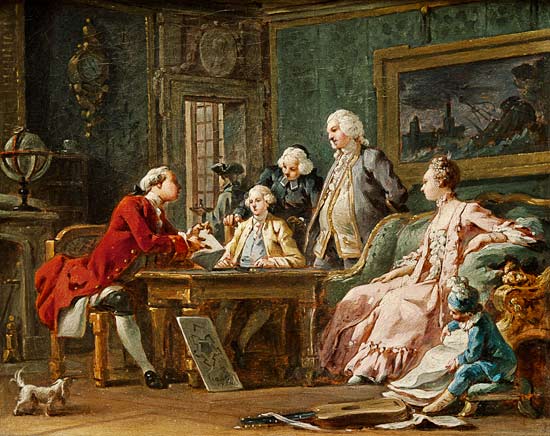
In this article we will focus on the notion of wealth from the perspective of Roman stoic philosophers.
In today’s society, like in many others in the past, wealth is the symbol of success. Especially in a capitalist society we can see wealth as the reason and goal of all our efforts. If somebody is poor and unsuccessful, it is probably their fault – that is the reasoning of those who put wealth as the goal of their lives.
That kind of reasoning is present because our values are misaligned. The product of such thinking is shown when we care more about our finances than another human being. Others are just cogs that fulfill their automatic purpose every day, and we are only machines having one thing on our mind – making profit.
The idea of humanity is in danger now more than ever as we face gradual estrangement from each other. In this article, we will talk about stoic the perception of wealth, starting with Epictetus
Epictetus on wealth
All human beings seek ‘the’ happy life, but many confuse the means – for example, wealth and status – with that life itself. This misguided focus on the means to a good life makes people get further from the happy life. The really worthwhile things are the virtuous activities that make up the happy life, not the external means that may seem to produce it.
Epictetus
Epictetus strikes at the core of what many people think wealth is. Money can buy many things, but it cannot buy happiness, and while you are chasing your bag of dollars, your true happiness is forsaken. People should first seek happiness within because the greatest happiness is being content with yourself.
Contentment comes not so much from great wealth as from few wants.
Epictetus
Related to the last quote, contentment can’t be bought, nor does it depend on how much material gains you have. The more you want, the less you will have. Our desires often take wings, and in its flight we are prone to forsake what we have. Since it is true that our desires make us unhappy, why then do we think that fulfilling them will grant us happiness?
Seneca on wealth
What difference does it make how much there is laid away in a man’s safe or in his barns, how many head of stock he grazes or how much capital he puts out at interest, if he is always after what is another’s and only counts what he has yet to get, never what he has already. You ask what is the proper limit to a person’s wealth? First, having what is essential, and second, having what is enough. – Seneca
Seneca’s attitude towards focusing one’s life on accumulating wealth is similar to that of Epictetus. Be mindful and check your focus.
Blind interest and chasing wealth can put our focus in a contrary direction to our happiness. True wealth depends on our perspective and the quality of our thoughts about it – what is essential and enough.
Wealth is the slave of a wise man. The master of a fool.
Seneca
In this short quote we can see what every stoic thought of wealth in general. We should put our minds first and estimate the value of wealth.
To the healthy mind and true character, wealth has its boundaries and it is always treated as a tool. On the other hand, wealth is the master of those who pursue it as the goal and whose false happiness depends on it.
Marcus Aurelius on wealth
The great Roman emperor and stoic philosopher was clearly no stranger to wealth, yet he was also considered as equally philanthropic as he was philosophic.
The only wealth which you will keep forever is the wealth you have given away.
Marcus Aurelius
There can be some misinterpretation about this quote. It is not about getting rid of wealth because it can harm you. It is about the wealth you will get if you help those in need.
Real wealth comes from within. Our own personality and its growth cannot be taken from us. Helping others in need is the mark of a true, sensitive and compassionate character.
Receive wealth or prosperity without arrogance; and be ready to let it go.
Marcus Aurelius
This is the true form of indifference to wealth. Marcus Aurelius, and other stoics thought of wealth as indifferent. It is not good nor bad as it is. Our mind determines the value of it.
If the mind is focused on outer events and if its happiness depends on wealth, then our stability will depend on a constant fear of losing it. True character lies in indifference towards wealth, because if one is ready to let go of it at any given moment, then one is happy regardless.










